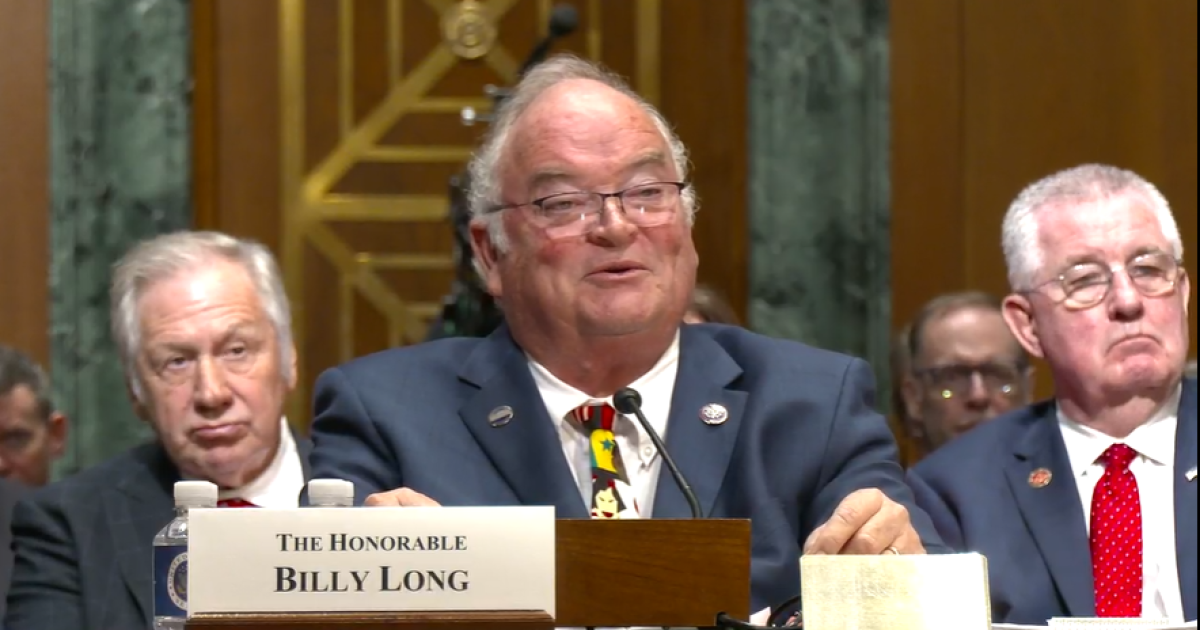The Internal Revenue Service has been stepping up its audits of large partnerships lately, but partnerships have some ways to correct errors on the returns they’ve already filed to help them avoid closer scrutiny.
In October, a field operations unit within the IRS’s Large Business and International Division began operations with the goal of streamlining audits of pass-through entities such as partnerships. The IRS gained the authority to do its partnership audits more efficiently under the Bipartisan Budget Act of 2015 through a centralized regime for examining an entire firm as a whole, rather than laboriously scrutinizing each partner individually.
The centralized audit regime is probably the best known change for partnerships under the BBA, but there are others that partners should keep in mind when it comes to their tax returns.
In general, a partnership that’s subject to the BBA’s centralized partnership audit regime can’t file amended returns or amended Schedule K-1s, but instead needs to file an administrative adjustment request, or AAR, to make a change to a previously filed partnership return.
“In order to correct errors in partnership returns, the Bipartisan Budget Act of 2015 changed the rules,” said Rochelle Hodes, Washington National Tax Office principal at the Top 25 Firm Crowe LLP. “There are no more amended returns. Everybody has to use the AAR process, except those few taxpayers who have elected out of the BBA regime. Election out of the regime is very limited. Tiered partnerships can’t elect out. Partnerships with trusts and partners with disregarded entities can’t elect out. Partnerships who have S corps with partners in some cases can elect out. But for the most part, unless you have a partnership that has all individuals or all C corporations as partners, they’re going to be covered by BBA, and they’re not going to be able to do amended returns anymore, so they’re going to have to use this AAR process for correction of errors.”
The AAR process may be unfamiliar to many firms. “Even though the rules have been in effect generally for partnership taxable years beginning on or after Jan. 1, 2018, a lot of taxpayers and practitioners are only now just dipping a toe into having to use these new procedures,” said Hodes. “Historically, a lot of partnerships did not amend returns, and if they did, they would send out amended returns and corrected K-1’s. Under the new process, a different set of forms gets filed and effectively the adjustment to the prior year and the tax resulting therefrom is figured on a pro forma kind of basis. You figure out how much tax difference there is when you correct the error, and then you take that tax difference and you move it up to the ‘current year.’ That’s when you pay the tax that results.”
When there’s a mistake that’s not a numeric error like an incorrect amount of income, but instead the partnership neglected to attach a form or make a Section 754 election to adjust the basis of property, then it needs to follow the new AAR process. The American Institute of CPAs has asked the IRS to create an “EZ” process for simple adjustments or omitted forms and elections.
“When nothing else is changed on the return and you just forgot to attach the statement, you have to do this more complicated AAR process to attach the statement,” said Hodes.
However, there may be help on the way. “It’s my understanding that the IRS is going to be coming out with a more streamlined process for correcting errors like that,” said Hodes. “It’s something that AICPA has been asking for for a number of years now. The AICPA calls it the AAR-EZ, like the easy form. And it’s my understanding that’s something that is close to coming out, so that should be welcomed.”
The 2015 BBA law made it easier for the IRS to audit a large complex partnership such as a private equity firm, changing the rules previously enacted under the Tax Equity and Fiscal Responsibility Act of 1982, also known as TEFRA. But the process for formulating the regulations for the centralized audit regime has taken years to play out, as lobbying groups for PE firms and hedge funds lobbied lawmakers on Capitol Hill to weaken the rules. They have options such as the “pushout election.”
“Partnerships are not taxpaying entities,” said Hodes. “Previously for the IRS to collect any tax due, generally under TEFRA, they would audit the partnership, make adjustments to items, and then the IRS had to flow those adjustments through and find taxpaying partners, and those taxpaying partners then had an opportunity to, in many cases, go to the Tax Court and challenge whether they owed the amounts or not, so the IRS didn’t get their money right away. What the BBA does is it says, look, let’s get this tax thing all set up. We’ll do a stand-in for the tax that would have been owed. We’ll do it close enough, and we’ll take all the adjustments that the IRS made, we’ll multiply it by the highest rate, which happens at this point in time to be 37%, and the partnership can pay the tax, and we’ll call it a day, and that will be much easier, so the IRS won’t have to do any of that work, and the individual partners won’t be able to challenge, and the fisc will be protected. When the BBA rules legislation was first being drafted, that’s how the rules lined up. But groups went to the Hill and said, ‘But that’s not fair, because if you take into account the individual partners’ particular circumstances, the tax that’s going to get paid is far less, and there should be a system to allow the individual partner’s circumstances to be taken into account.’ And thus, the pushout election was born.”
A partnership filing an AAR can decide whether to pay any tax attributable to taking the adjustments into account (called an imputed underpayment) or push the adjustments out to the reviewed year partners, according to an advisory from Crowe co-written by Hodes. A partnership that pushes out the adjustments needs to furnish each partner a Form 8986, “Partner’s Share of Adjustment(s) to Partnership-Related Item(s),” showing the partner’s allocable share of the adjustments and file copies of the Form 8986 and Form 8985, “Pass-Through Statement – Transmittal/Partnership Adjustment Tracking Report (Required Under Sections 6226 and 6227),” with the IRS. The forms have to be filed and furnished when the AAR is filed.
“Under TEFRA the IRS had to flow through the adjustments to the partners, and it was a lot of work for the IRS and a lot of man hours for the IRS, and they could only do so few because of all that work,” said Hodes. “The burden has now shifted to the partnership. If you want to flow it through partnership, you and all the partners in the tiers will now have to bear that burden, and they flow through the adjustments.”
A pushout can occur in the context of an examination, an IRS audit or an AAR. “An audit is when the IRS makes adjustments,” said Hodes. “An AAR is when the partnership, on its own, makes an adjustment. And in the case of an AAR, Congress made the decision in statute and said, You know what? If those adjustments are taxpayer favorable, the partnership must push out those adjustments if you’re doing an AAR. If you’re correcting something because you didn’t give your partners enough of the good stuff, we have made the policy call in Congress that if you’re going to do it yourself, you need to send that good stuff out to the partners. In my experience, most AARs involve a pushout, and that is a big part of what’s making these AARs so complex. In many cases, an AAR is going to have both taxpayer favorable and some taxpayer unfavorable items. But so long as you have a tax favorable item, you’ve got to do the push, so why not just push everything? It is a rare circumstance where I have seen the partnership pay the [imputed underpayment] and not do a pushout.”
The IRS has made efforts to crack down on tax evasion by large partnerships, but that could change with the incoming Trump administration. On Wednesday, President-elect Trump announced that he would be replacing IRS commissioner Danny Werfel, who has made a priority of emphasizing the large partnership audits, before the end of Werfel’s term in 2027 with former Rep. Billy Long, R-Missouri, who has promoted use of the Employee Retention Credit. That could mean large partnerships will be able to continue to avoid audits.
“You previously had an audit rate of partnerships of zero or quite near zero,” said Hodes. “Meanwhile, over the past 50 or 40 years, we have seen more and more assets in the economy flow through partnership structures, as opposed to corporate structures. But partnerships are complex.”
The AAR process and the pushout election made large partnership audits even more complicated for the IRS. She noted that the regulations in 301.9100-2 include a correction opportunity for errors if they’re caught within a six-month or a 12-month period after the return is filed. A late election under Section 754 is also included in that correction process for taxpayers that file and attach an AAR.
“It’s a good thing to keep in mind,” said Hodes. “I had a boss who once told me that the ability to correct mistakes is the reason why pencils have erasers, and 9100 relief processes are intended to not punish people for ministerial oops’s. It’s just something to keep in mind that there are opportunities to obtain relief.”
She also pointed out that the IRS is offering extensions in many parts of the country that have been affected by natural disasters. “There were a lot of disasters in 2024, and due dates and such have been extended,” said Hodes. “When you think you might have been late, you might not have been late in filing or with payment. As you go through and look to see if you have errors, it’s important to keep in mind opportunities for relief through the disaster rules as well, if they’re applicable.”


 Economics1 week ago
Economics1 week ago
 Economics1 week ago
Economics1 week ago
 Personal Finance6 days ago
Personal Finance6 days ago
 Economics5 days ago
Economics5 days ago
 Economics1 week ago
Economics1 week ago
 Personal Finance1 week ago
Personal Finance1 week ago
 Personal Finance1 week ago
Personal Finance1 week ago
 Economics4 days ago
Economics4 days ago











